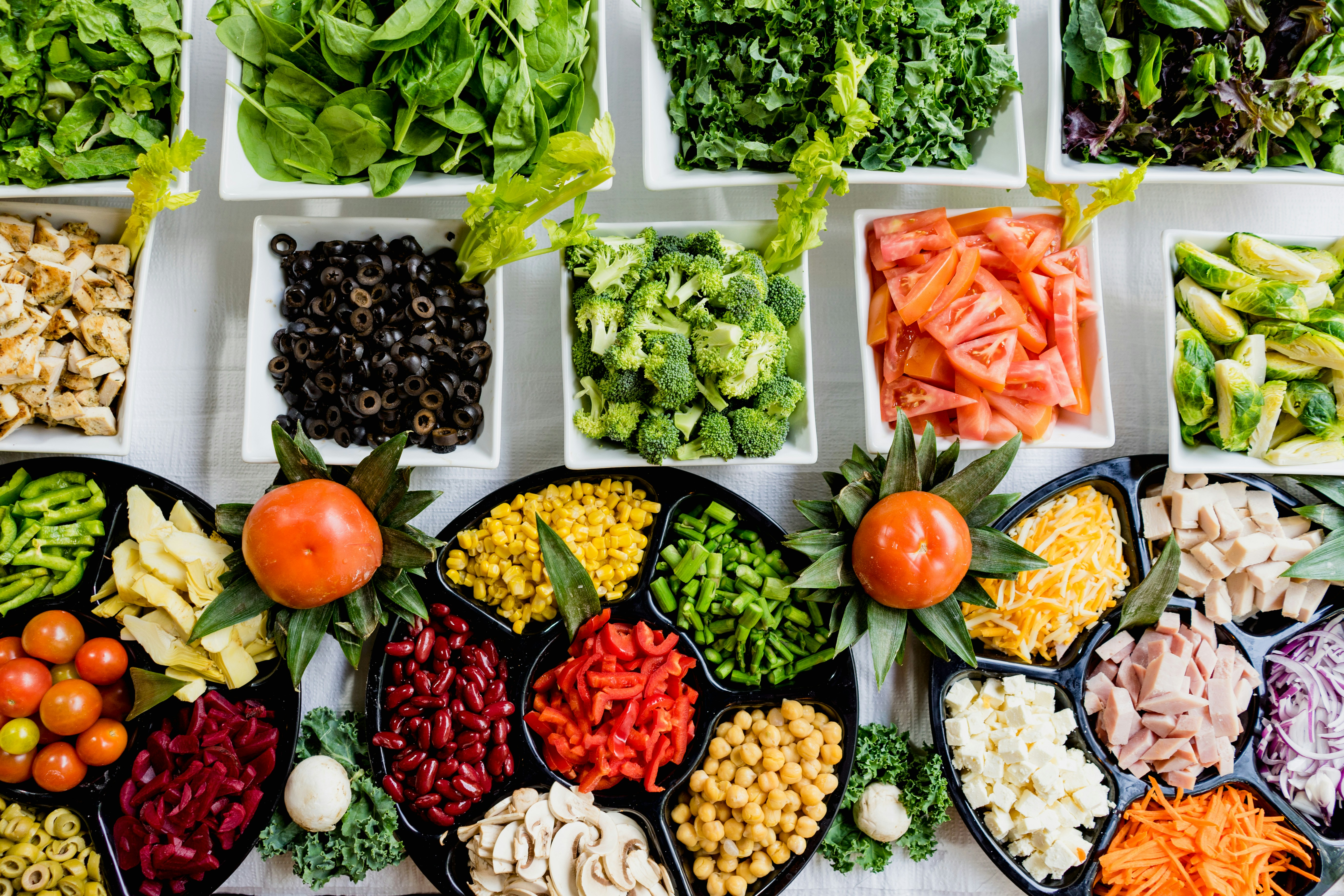First Trimester Nutrition Guide: Surviving & Thriving (Weeks 1-12)

Is this safe to eat? 🥑
Scan any meal to instant pregnancy safety checks and nutrition insights.
Congratulations! You see those two pink lines, and suddenly your whole world shifts. You're pregnant! It's one of the most exciting moments of your life... and then the first trimester symptoms hit.
For many women, the first 12 weeks are a strange paradox: you're doing the critical work of building a tiny human from scratch, yet you might feel more like you have a persistent stomach bug than a radiant "glow." You know you should be eating nutrient-dense foods, but the smell of broccoli might send you running for the bathroom.
If you're currently surviving on saltines and ginger ale, take a deep breath. You are not failing. This guide is all about realistic first trimester nutrition — how to get what you need, navigate the nausea, and give your baby a strong start without making yourself miserable.
What's Happening in the First Trimester?
Before we talk food, let's appreciate what your body is doing. In just 12 weeks, your baby goes from a single cell to a fully formed fetus with arms, legs, eyes, and beating heart. Meanwhile, your body is:
- Creating the placenta (an entirely new organ!)
- Increasing blood volume
- Surging with hormones like hCG and progesterone
- Expanding your uterus
It's no wonder you're exhausted. Your body is running a marathon while you're sitting on the sofa.
The "Ideal" vs. The "Real" Diet
Instagram might show pregnant women drinking green smoothies and eating salmon salads, but real life often looks like dry toast and plain pasta. And that is okay.
In the first trimester, your baby is tiny (the size of a lime by week 12) and their calorie needs are negligible. They take what they need from your body's stores. Your main job right now is simply to survive and stay hydrated.
The Non-Negotiables: Key Nutrients
While calories aren't a concern yet, a few micronutrients play a critical role in early development. If you can only focus on a few things, make it these:
1. Folate (or Folic Acid)
Why: Crucial for preventing neural tube defects (spina bifida) in the first 28 days of pregnancy — often before you even know you're pregnant.
Goal: 400-600mcg daily.
Sources:
- Prenatal vitamins (the safety net!)
- Leafy greens (spinach, kale)
- Fortified cereals and bread
- Lentils and beans
- Oranges and citrus juice
2. Protein
Why: The building block for every cell in your baby's body. Protein also helps stabilize your blood sugar, which can actually reduce nausea.
Goal: Aim for 75g+ daily (but do what you can).
Gentle Sources:
- Greek yogurt (cold and creamy)
- Cheese sticks or cottage cheese
- Scrambled eggs
- Nut butter on toast
- Bone broth (great for sipping)
3. Iron
Why: Your blood volume increases by up to 50% during pregnancy. Iron is needed to make hemoglobin to carry oxygen to your baby.
gentle Sources:
- Fortified breakfast cereals (often very high in iron)
- Spinach (cooked reduces volume)
- Lean red meat (if you can stomach it)
- Lentils
Tip: Iron supplements can worsen nausea. If your prenatal makes you sick, try taking it with food or right before bed.
Navigating Nausea: The Survival Strategy
If "morning sickness" (which typically lasts all day) is your reality, nutrition rules change. The goal shifts from "balanced meals" to "keeping food down."
🤢 Anti-Nausea Toolkit
- Prioritize Cold Foods: Hot foods release smells that trigger nausea. Cold foods like yogurt, fruit, and sandwiches are safer.
- The "Beige Diet" is Fine: Plain carbs (crackers, toast, potatoes, rice) soak up stomach acid and are easy to digest.
- Sour Power: Lemon, lime, and sour candies can cut through nausea for many women.
- Ginger: Ginger tea, chews, or ale (with real ginger) helps settle the stomach.
- Never Get Empty: An empty stomach = a nauseous stomach. Graze constantly rather than eating big meals.
Hydration: The Foundation
Dehydration triggers nausea, headaches, and fatigue. You need extra fluids to build amniotic fluid and support increased blood volume.
If water makes you gag:
- Add lemon or lime slices
- Try sparkling water or seltzer
- Drink ice-cold water through a straw
- Eat water-rich fruits (watermelon, grapes, cucumber)
- Sip warm herbal tea (peppermint or ginger)
- Broths and soups count!
A Week of "Survival Mode" Eating
Forget gourmet meals. Here are simple, gentle ideas for when cooking feels impossible:
Breakfasts
- Monday: Wholemeal toast with peanut butter (protein + carb)
- Tuesday: Bowl of fortified cereal with cold milk
- Wednesday: Fruit smoothie with a scoop of protein powder
- Thursday: Scrambled egg on toast
- Friday: Bagel with cream cheese
- Weekend: Pancakes with berries
Lunches (Cold & Quick)
- Monday: Cheddar cheese sandwich with cucumber
- Tuesday: Greek yogurt bowl with granola and fruit
- Wednesday: Hummus with pita bread and baby carrots
- Thursday: Cold pasta salad (made ahead)
- Friday: Cheese and crackers plate with an apple
- Weekend: Grilled cheese sandwich
Dinners (Minimal Effort)
- Monday: Jacket potato with beans and cheese
- Tuesday: Pasta with mild tomato sauce (add spinach if brave)
- Wednesday: Scrambled eggs and toast (breakfast for dinner!)
- Thursday: Chicken noodle soup (canned is fine)
- Friday: Quesadilla with cheese and mild salsa
- Weekend: Pizza (vegetable toppings if possible)
Snacks (Keep These Everywhere)
- Trail mix or almonds
- String cheese
- Apple slices
- Pretzels
- Yogurt tubes
What to Avoid (The "No" List)
While you're focusing on what to eat, keep these safety guidelines in mind:
- High-Mercury Fish: Shark, swordfish, king mackerel, tilefish.
- Raw/Undercooked Meat & Fish: No sushi (with raw fish), rare steak, or raw oysters.
- Unpasteurized Dairy: Avoid soft cheeses like brie or feta unless cooked/pasteurized check labels.
- Deli Meats: Unless heated until steaming (listeria risk).
- Excess Caffeine: Stick to 200mg/day (about one 12oz coffee).
- Alcohol: No safe amount has been established.
The Bottom Line
The first trimester is about grace, not perfection. If you eat a balanced diet, great. If you survive on crackers and multivitamins for 12 weeks, also great. Your baby is resilient.
Listen to your body. Rest when you're tired. Eat what stays down. And remember: this phase is temporary. The "golden period" of the second trimester is right around the corner!
Related Reading
See also: Best Foods for Nausea, Folate vs Folic Acid, and First Trimester Meal Plan.
Want to track your meals and check food safety instantly? Try PregnancyPlate — trusted by 50,000+ expecting mothers.

